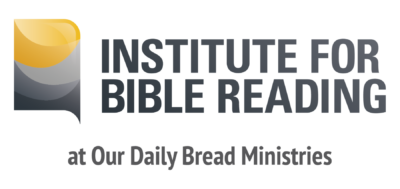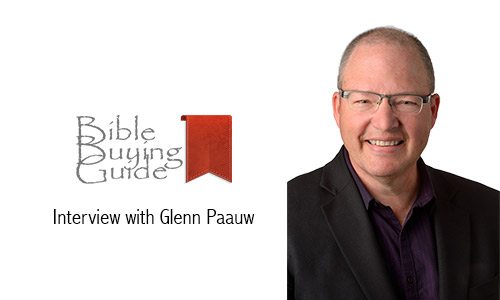From “No Bible” to “Know Bible” Part 3: Reading Together
Editors Note: From “No Bible” to “Know Bible” is a 6-part series on the path toward great Bible engagement. Click here to read Part 1 and Part 2.
What does it mean to receive the Bible on its own terms? Dynamic, living Bible engagement happens when a community:
- has good access to a well-translated text presented in its natural literary forms,
- regularly feasts together on whole literary units understood in context,
- understands the overall story of the Bible as centered in Jesus, and
- accepts the invitation to take up its own role in God’s ongoing drama of restoration through
the power of the Spirit.
When the Scriptures are received on their own terms like this they can once again become God’s speech act—instructing, revealing, convicting, judging, comforting, healing, and saving with all their intended power.
Part 3: Reading Together
We read a well-translated Bible, and we read it holistically. We read complete literary units. If at all possible, we read in a nice, clean, elegant Reader’s Bible. They’re built to make reading easier and better, so no surprise there. But wait. Who is reading? We are. We are reading.
Really? We? Yes.
Because, first, the research evidence shows most of us are not really reading the Bible very much. And second, when we do read it, it’s not really “we.” It’s more like me or you. Those who are doing something with the Bible are overwhelmingly doing it alone.
The fact is, we’ve largely privatized our experiences with the Bible. We hold up the “daily quiet time” as the center of what we’re supposed to do with the Bible. We’ve created a Bible culture in which an individual experience is at the heart of what a serious Bible reader does.
Alone with a Bible, I have my private time with God.
Which is fine.
Of course, we’re not against any of this. It’s great to read your Bible alone. Lots of very good things can and do happen.
But not all of the good things that God intended. Two historical points are really important right here. First, when the Scriptures were first experienced by God’s people, they were always experienced in community. There were very few copies, and so a village in ancient Israel or one of the earliest Christian gatherings would at most have a copy of some of the books that now make up the Bible. So these would be read aloud for the community, and people would simply listen.
Of course, they could listen well and remember what they heard, because they lived in an oral culture, not a book culture. And the historical evidence is that these experiences were interactive, not merely one-way communication. Leaders and people were processing the sacred words together.
But secondly, and just as importantly, the original audience knew that the Bible itself was a community formation book, not a private me-and-God book. The word “you” in the Bible is most often a plural word, not a singular. It is addressed to the gathered people of God and is intending to speak to them in their corporate actions and beliefs. As a group they are invited to get caught up in God’s great restoration movement.
We’ve moved away from this ancient, oral, community-based culture in lots of ways. In fact, it is worth noting that the Bible first became widely available to individuals in their own language right at the time that modern individualism was growing as a cultural force. We live and move and have our being in this individualism. It is the air we breathe. Without even thinking about it, we think and act in independent, self-oriented ways.
So for us, recovering a deep, transformative engagement with the Scriptures has to include rediscovering ways of experiencing the Bible together. And this means more than doing Bible study together. We must back up a step and find new ways of simply reading the Bible together, listening to it being read and letting these words wash over us.
Then we must craft new ways of interacting openly and honestly with what we’ve read or heard. We must learn the humility to speak our own views respectfully and well, and then listen closely and seriously to what others have to say.
 This communal engagement will look more like a book club than a traditional Bible study.
This communal engagement will look more like a book club than a traditional Bible study.
Finally, we need to think about the communal implications of a passage, not only the personal impact for ourselves in isolation. Our Bible reading must explicitly raise community-based questions. What kind of community will embody this teaching or instruction? How can we become that kind of community?
Bringing community-based engagement back to our Bibles won’t happen unless we are intentional about making it happen. The Institute for Bible Reading has created a whole-church-based Bible reading program called Immerse precisely for this reason.
I don’t see, hear, experience, or know enough to experience the Bible sola me. I am too small a person to read the Bible only by myself. Together, we are the people of God’s new creation and we need each other. Even in our Bible reading, understanding, and, yes, living.




